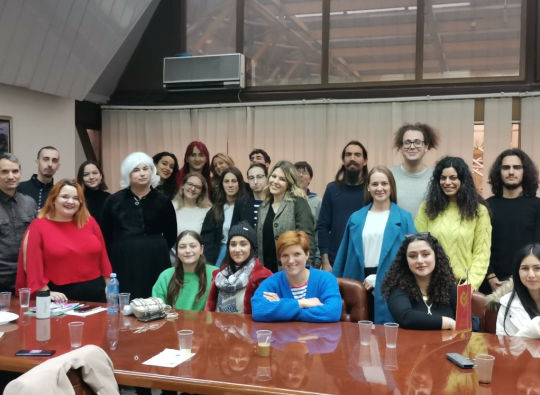Now, municipal police are issuing decisions demanding that owners of those buildings, which really look ugly and neglected, remove their remains at their own cost. The SDF possesses several such decisions, often written rather cynically; thus, it can be read that buildings “lost their features due to the absence of construction parts, for which reason they are not appropriate for being used in accordance with their purpose, and have not been in use for at least five years.”
It is avoided to define what caused “the absence of construction parts”, and since when exactly the buildings have not been in use, although both issues are evident: it is easy to establish since when a building has not been in use and why.
Here, it should be borne in mind that the owners of these buildings have been punished by the Republic of Croatia in multiple ways. First, government failed to protect their property, although it was obliged to do so. Further, it revoked Article 180 of the Law on Contracts and Torts, which provided that “a community whose agencies, in conformity to existing regulations, were bound to prevent injury or loss, shall be liable for loss due to death, bodily injury or damaging or destroying property of an individual due to acts of violence or terror, as well as in the course of street demonstrations and public events.”
It is important to mention that the Republic of Croatia is directly responsible for damaging and destroying many of these buildings, i.e. many of these buildings were destroyed by the very forces under control of the Republic of Croatia.
For this reason, numerous owners of buildings demolished due to the acts of violence and terror sued Croatia before 1996, while Article 180 was still in force; however, after its revocation, they lost and were even obliged to pay large court fees. The pinnacle of injustice to these citizens is that they are now requested to pay for the removal of remains of buildings which the government failed to protect; they have not been compensated for the destruction of their property, but are left today only with ownership of the land on which these buildings were built.
In municipal police’s decisions, the owners are cynically called land owners and holders of the building rights; it is stated that, if the owner fails to remove the remains of their destroyed buildings within 30 days from the day of issuance of the decision, this shall be done by public authorities, but at owner’s expense. It is clear that in such case, public authorities can be ‘reimbursed’ only by expropriating ‘land owner and holder of the building rights’, that is, by transforming the land in private ownership into the ownership of local self-government unit.
At the same time, since those damaged and destroyed buildings are owned by the members of the Serb community, this is clearly the case of flagrant violation of the Constitutional Act on the Rights of National Minorities, in particular Article 4, Paragraph 5, which provides: “It shall be prohibited to take any measures designed to change the ethnic structure in areas populated by national minorities with a view to undermining the exercise of or limiting the rights and freedoms defined by this Constitutional Act and special laws.”
As far as ownership of construction land is concerned, such practice would result in changing the ethnic structure in local communities. It should be borne in mind that the Law on Agricultural Land had similar intentions, envisaging the expropriation of owners of uncultivated agricultural land, in which way members of the Serb national community would be the ones to lose ownership. Upon SDF’s constitutional complaint, the Constitutional Court revoked the provisions of this law.
We warn that, from the point of view of the Constitutional Act on the Rights of National Minorities, this case involves equal violation of rights of the Serb national community and threaten its sustainability in local communities.
We demand that the practice carried out by municipal services, that is, their municipal police change, and that decisions issued so far are put out of force; further, an agreement should be made with the owners, under which their ‘ownership rights and building rights’ will remain protected, while the local community or government should bear the costs of removal of such buildings.
Such practice is nothing but the last step in the policy of preventing the return of members of the Serb community to their homes. Instead, the government should think about the implementation of programmes which would contribute to the very opposite process – proactive work of institutions aimed at facilitating the return of Serb refugees with full respect of their ownership and reparation rights.
For SDF:
Veljko Džakula, President
For Youth Initiative for Human Rights:
Mario Mažić, Programme Director
Contacts:
Serb Democratic Forum: +385 1 4921 862
Youth Initiative for Human Rights: +385 98 552 976






